Featured
World Bank pledges $12.8 mln to help virus-hit Maldives workers

World Bank is providing $12.8 million to the Maldives to finance an emergency scheme that allows workers facing job and income losses due to the coronavirus pandemic to get a monthly allowance.
The Covid-19 Emergency Income Support Project, approved by the Washington-based global financial institution’s board on Tuesday, will largely finance the government scheme, which provides temporary support of up to MVR 5,000 ($322) per month to workers who have lost their jobs or income as a result of the coronavirus pandemic.
“The drastic fall in tourism revenues and the constraints necessitated by the Covid-19 containment efforts have dealt a severe blow to low-income households who have lost their jobs or their source of income,” Idah Z. Pswarayi-Riddihough, World Bank Country Director for Maldives, Nepal, and Sri Lanka, was quoted in a statement, as saying.
“This project will support the government’s efforts to deliver cash transfers and food benefits directly to those who need them the most. The project will also strengthen the country’s social welfare system to improve its preparedness for future crises.”
The project will also strengthen the government’s capacity to distribute allowances and other cash transfers. It will enhance administrative systems to give a greater role to local councils in helping people across the archipelago access support.
A new unemployment insurance programme, along with a far-reaching national social protection framework, will also be formulated and launched to help soften the blow on both employers and employees in future emergencies.
The existing retirement pension scheme and other similar programmes will be reviewed to make them more sustainable.
“The current crisis shows the importance of having a safety net for all Maldivians, to prevent people from falling into poverty when times get tough,” Thomas Walker, Senior Economist and Task Team Leader, said.
“This project will help build fiscally sustainable social protection programs that can reach any Maldivian who needs help.”
The total project cost is $12.8 million, including a $6.4 million grant and a $6.4 million credit from the International Development Association (IDA), the World Bank’s concessional credit window for developing countries.
The World Bank had in April approved a fast track package of $7.3 million to help the Maldives prevent, detect, and respond to the pandemic and strengthen its public health preparedness.
Another $10 million in contingency financing was also provided to support the government’s efforts to mitigate the economic and financial impact of the pandemic.
Some 22,000 Maldivians employed in the Indian Ocean tourist paradise’s resorts have lost their jobs or faced income losses due to the coronavirus pandemic, according to a recent UNDP study.
UNDP said the number would increase to 45,000 plus with the inclusion of foreign employees.
Workers in other sectors such as construction are also impacted.
An MVR 2.5 billion stimulus plan, announced in March, includes MVR 1.55 billion ($100 million) in emergency loans for businesses to meet short-term working capital needs.
Under the government’s stimulus plan, emergency loans for businesses with an annual turnover of less than MVR 10 million ($649,000) and self-employed individuals are arranged through the SME Development Finance Corporation (SDFC), a state-owned financial institution exclusive for small and medium enterprises.
Emergency loans for resorts as well as local businesses with a turnover of over MVR 10 million are arranged through Bank of Maldives (BML).
Both SDFC and BML are accepting applications for the emergency finance.
The unsecured loans by BML and SDFC come with a six-month grace period and a repayment period of three years. Interest is charged at six per cent per annum, but no interest is charged during the grace period.
The government initially mandated all businesses that avail the emergency finance to retain their local workforce and pay salaries.
However, the government has since relaxed the eligibility criteria to give “a second chance” to businesses that failed to secure the finance in the first round of applications.
Under the relaxed rules, businesses that agree to rehire axed local employees and give a monthly salary of at least MVR 5,000 ($322) will qualify for the emergency loan scheme. Those that pledge to ensure employee pay will not fall below MVR 5,000 can also apply. =
In addition to the emergency finance, the government’s stimulus plan is complemented by a package of financial measures, including a six-month moratorium on principal and interest repayments for personal, business and housing loans sanctioned by commercial banks.
The government is also subsidising utility bills.
Those that lose jobs due to the coronavirus pandemic will also be paid unemployment benefit for a period of three months.
Meanwhile, the central bank has announced a $150 million facility for banks to ensure healthy foreign currency reserves.
The facility is arranged through a $400 million stand-by currency swap signed by the Maldives Monetary Authority (MMA) and Reserve Bank of India (RBI) last year, he said.
If required, minimum reserve requirement of banks will also be slashed from 10 to five per cent to allow banks to increase lending.
The coronavirus outbreak has hit the Maldivian economy hard, as travel restrictions and other preventive measures affect the country’s lucrative tourism industry, which contributes the bulk of the island nation’s state revenue and foreign reserves.
All international airlines have suspended scheduled operations to the Maldives, as the island nation enforced a blanket suspension of on-arrival visa in late March in a bid to combat the spread of the novel coronavirus.
With arrival numbers falling and the visa suspension in effect, several resorts across the Maldives had been closed.
Before the pandemic, the government had been bullish about tourism prospects, targeting two million, high-spending holidaymakers this year after last year’s record 1.7 million.
However, tourist arrivals saw a year-over-year decline of 22.8 per cent in the first 10 days of March. Officials say the number of tourist arrivals to the Maldives could drop by half in 2020.
Tourism has been the bedrock of the Maldives’ economic success. The $5 billion-dollar economy grew by 6.7 per cent in 2018 with tourism generating 60 per cent of foreign income.
However, the government is at present projecting a possible 13 per cent economic contraction this year — an estimated $778 million hit.
The Maldives is preparing to reopen its borders to visitors in July.
On March 8, Maldives reported its first cases of the novel coronavirus, as two hotel employees tested positive for Covid-19 at a luxury resort in the archipelago.
Eighteen more cases — all foreigners working or staying resorts and liveaboard vessels except five Maldivians who had returned from abroad — were later identified.
A six-case cluster of locals, detected in capital Male on April 15, confirmed community transmission of the coronavirus. Several more clusters have since been identified, bringing the total number of confirmed case in the Maldives to 1,942.
Eight deaths have been reported and 1,010 have made full recoveries.
The Maldives announced a state of public health emergency on March 12, the first such declaration under a recent public health protection law.
The public health emergency declaration has allowed the government to introduce a series of unprecedented restrictive and social distancing measures, including stay-at-home orders in capital Male and its suburbs, a ban on inter-island transport and public gatherings across the country, and a nationwide closing of government offices, schools, colleges and universities.
Non-essential services and public places in the capital such as gyms, cinemas and parks have also been shut.
Restaurants and cafes in the capital have been asked to stop dine-in service and switch to takeaway and delivery.
A nationwide shutdown of all guesthouses, city hotels and spa facilities located on inhabited islands is also in effect.
Photo: TTG Asia
Cooking
Patina Maldives hosts Chef Shannon Bennett for exclusive April residency

From 1 to 5 April 2026, Patina Maldives, Fari Islands will host Shannon Bennett, one of Australia’s most recognised culinary figures and the creative force behind Belongil. The residency brings together a chef known for shaping dining as an emotional and reflective experience with a destination defined by perspective, creativity and purpose.
Bennett’s career extends beyond traditional notions of cooking. Through projects such as Vue de Monde and Belongil, he has explored dining as a medium for memory, connection and emotion, placing emphasis on experience rather than consumption. His approach centres on creating moments that remain with guests long after the meal has ended.
At Patina Maldives, the residency represents a convergence of shared values. Over five nights, guests are invited to take part in a limited series of dining experiences shaped by intention, curiosity and a sense of place. Rather than recreating Belongil in another setting, the programme evolves its philosophy, drawing inspiration from the natural rhythm and clarity of the Maldivian environment.
Commenting on the collaboration, Bennett said Belongil was conceived as more than a place to eat, but as a space for ideas, connection and lasting moments. He noted that Patina Maldives reflects a similar sense of purpose, adding that bringing his work into the island setting offered an opportunity to create experiences that feel grounded, honest and meaningful.
Patina Maldives continues to develop its identity by providing a platform for global creative voices to shape new conversations and perspectives. The residency with Bennett aligns with this approach, positioning cuisine as one element within a broader cultural and experiential narrative.
Tom Bray, Director of Lifestyle at Patina Maldives, said the resort exists to bring people closer to ideas, creativity and self-discovery. He added that welcoming Bennett reflects this philosophy, describing the residency as an experience designed to shift perspective rather than focus solely on gastronomy.
The residency is presented as an experience defined by intention rather than spectacle. Taking place over five nights on a single island, it brings together Patina Maldives and one of the culinary world’s most reflective minds for a programme shaped by presence, purpose and a sense of moment that cannot be replicated in the same way again.
Featured
You & Me Maldives unveils curated Premium All Inclusive programme
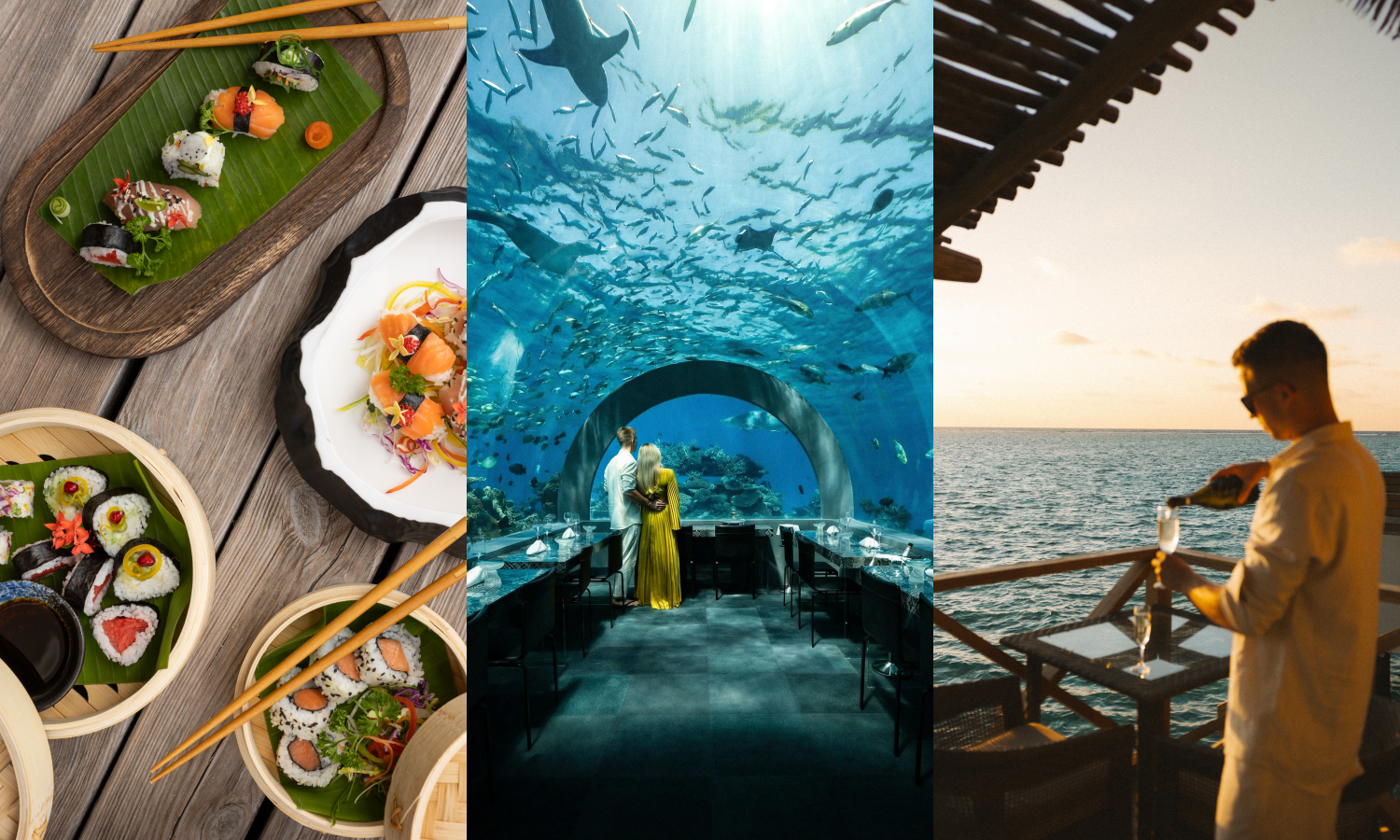
You & Me Maldives, the adults-only luxury retreat under The Cocoon Collection, has announced the launch of its new Premium All Inclusive experience, aimed at enhancing island stays through a more seamless and comprehensive offering in the Indian Ocean.
The Premium All Inclusive experience is designed to begin from the point of arrival. Guests receive complimentary access to The Cocoon Collection Lounge at the seaplane terminal at Velana International Airport, where services are provided to ensure a smooth transition before the journey to the resort.
On arrival at the island, guests are welcomed in their villas with a chilled bottle of sparkling wine and a selection of canapés. The Premium All Inclusive plan includes unlimited premium beverages by the glass, featuring a curated range of wines, signature cocktails, top-shelf spirits, international beers and non-alcoholic options. The in-villa minibar is replenished daily with soft drinks, international beers, red and white wines, as well as assorted snacks. For stays of five nights or more, guests also receive two bottles of premium liquor from a selected list, provided once during the stay.
The experience further includes a range of activities. Guests staying a minimum of three nights are offered one sunset cruise and one snorkelling excursion per stay, while those staying seven nights or more are entitled to a catamaran cruise. Unlimited use of snorkelling equipment and non-motorised water sports, including canoeing, kayaking and paddle boarding, is also included, subject to weather conditions.
Dining forms a central part of the Premium All Inclusive concept. Guests can enjoy three themed dining evenings, including a seafood barbecue under the stars featuring prawns, lobster and oysters. For stays of five nights or more, guests may also take part in a complimentary group cooking class, with a choice between ethnic or Italian cuisine, led by the resort’s culinary team.
Wellness offerings are also incorporated into the programme, with guests able to participate in up to three complimentary sunrise yoga sessions per stay, subject to availability.
The introduction of the Premium All Inclusive experience reflects the resort’s focus on personalised service and carefully curated stays. The offering is positioned to appeal to couples seeking relaxation, romance or activity-led experiences within an adults-only island setting.
Featured
Eid celebrations at SO/ Maldives blend Arabic tradition and Maldivian culture

SO/ Maldives is inviting global travellers this season to reimagine Eid not merely as a holiday, but as an immersive island escape. Located just 15 minutes by speedboat from Malé, the fashion-forward private island retreat sets the stage for a celebration where cultural heritage, contemporary luxury and tropical glamour come together.
At the centre of the festivities is an authentic culinary experience at Hadaba, the resort’s award-winning Arabic restaurant. Guests are offered Levantine flavours, artisanal mezze and traditional recipes presented with a modern approach, creating a setting for shared dining and celebration. As part of the resort’s dine-around concept, Hadaba can be included in a wider culinary journey across the island, allowing guests to experience Arabic cuisine alongside the resort’s other dining venues.
As evening falls, celebrations move to Lazuli Beach Club, where shisha rituals and Arabic-inspired refreshments are served in a beachfront setting. Traditional performances are complemented by Maldivian Boduberu drumming and fire dance displays, creating a cultural programme designed to appeal to international travellers seeking meaningful experiences.
Across the island, Eid is marked through a series of curated activities aimed at encouraging connection and creativity. Cultural workshops, including palm-leaf artistry and henna sessions, offer opportunities to explore heritage, while younger guests are engaged through themed crafts, interactive games and sweet treat decorating. The overall atmosphere remains celebratory while maintaining a relaxed pace that reflects the resort’s character.
Beyond the festive programme, the resort positions the long weekend as a fully immersive island retreat. Guests stay in beach and overwater villas featuring private pools and ocean views, with interiors inspired by high fashion. Time is spent between spa treatments, lagoon activities, beach club experiences and sunset dining, balancing celebration with seclusion.
To mark the season, the resort has introduced two limited-time stay offers. The One Night on Us offer provides savings of 33 per cent on stays of three nights or more, along with daily breakfast, complimentary transfers and spa privileges. The Soo Summer package offers preferential rates combined with spa experiences, curated dining inclusions and additional benefits for water villa stays.
Welcoming travellers from Europe, Asia, the Middle East and beyond, the resort presents Eid as a global celebration where Arabic traditions, Maldivian culture and contemporary design are brought together. This season, guests are invited to exchange routine for island surroundings and experience Eid through a redefined island perspective.
-

 News1 week ago
News1 week agoThe Ritz-Carlton Maldives, Fari Islands launches conservation programme for environmental observances
-
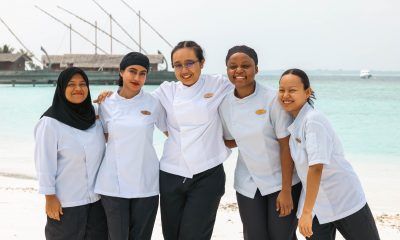
 Cooking1 week ago
Cooking1 week agoWomen at heart of kitchen: Milaidhoo Maldives marks International Women’s Day through gastronomy
-
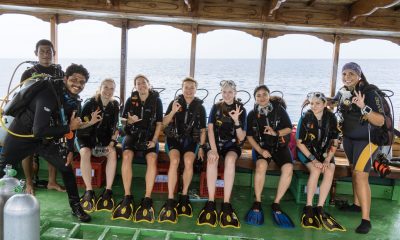
 Action1 week ago
Action1 week agoAtmosphere Foundation launches annual dive training scholarship for Maldivians
-

 Entertainment1 week ago
Entertainment1 week ago‘One festival, every sense’: Fari Islands Festival announces August 2026 return
-
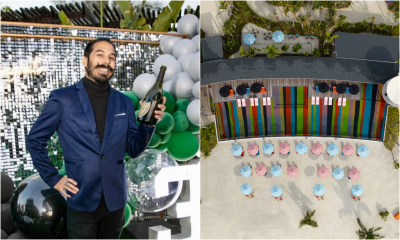
 Drink1 week ago
Drink1 week agoSO/ Maldives hosts tequila tasting and Lazuli Bar takeover for National Margarita Day
-

 Family1 week ago
Family1 week agoEaster goes playful at The Standard, Maldives with week-long Angry Birds celebration
-
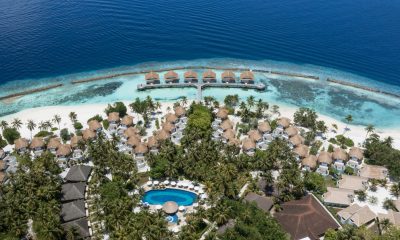
 Awards7 days ago
Awards7 days agoBandos Maldives earns Booking.com Traveller Review Award 2026
-
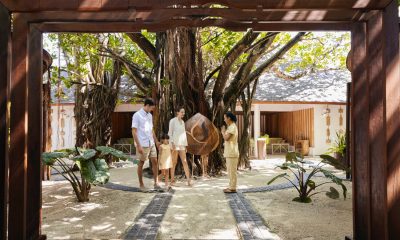
 Featured1 week ago
Featured1 week agoAncient banyan tree anchors spiritual experiences at Machchafushi Island Resort









